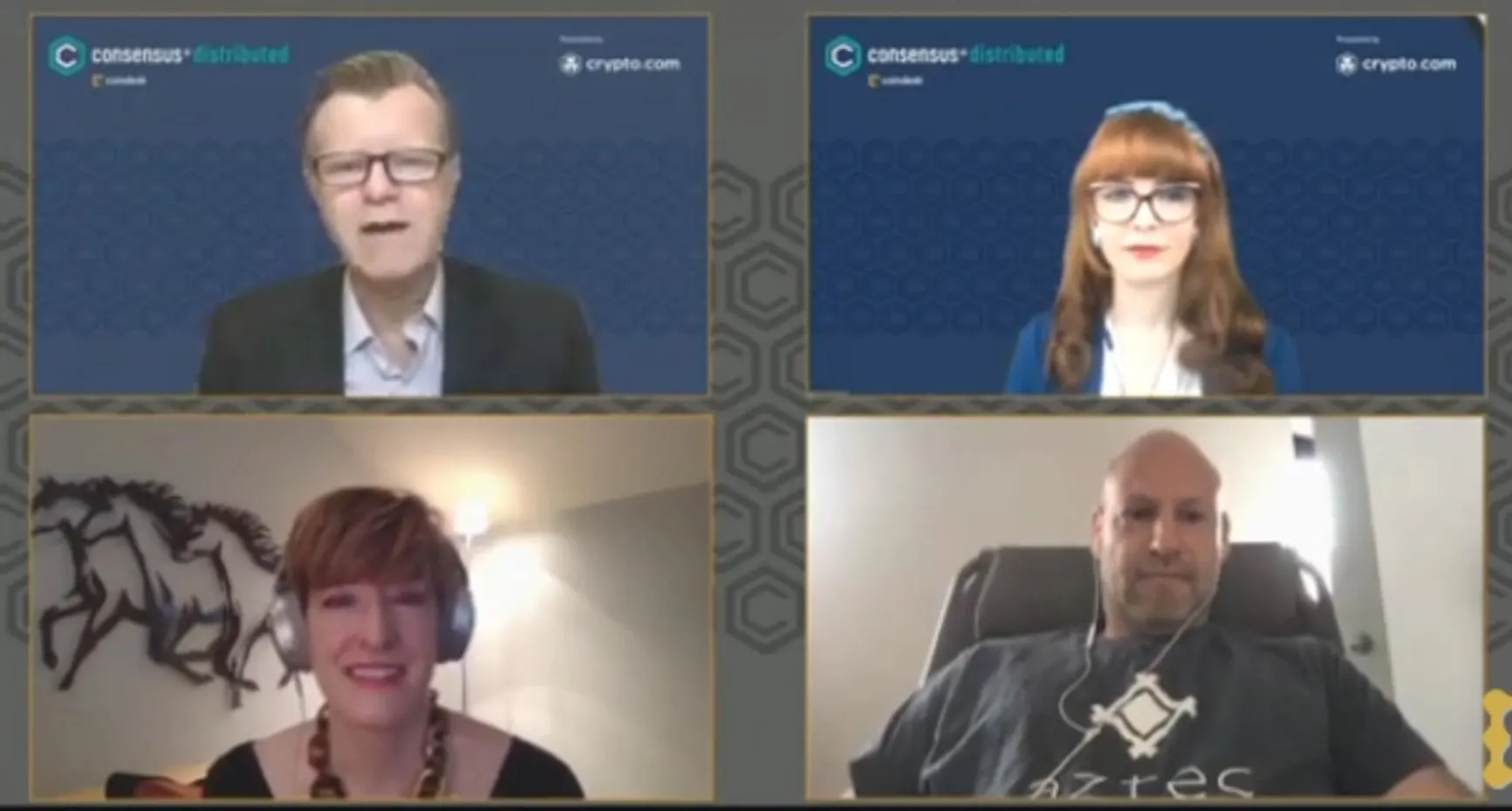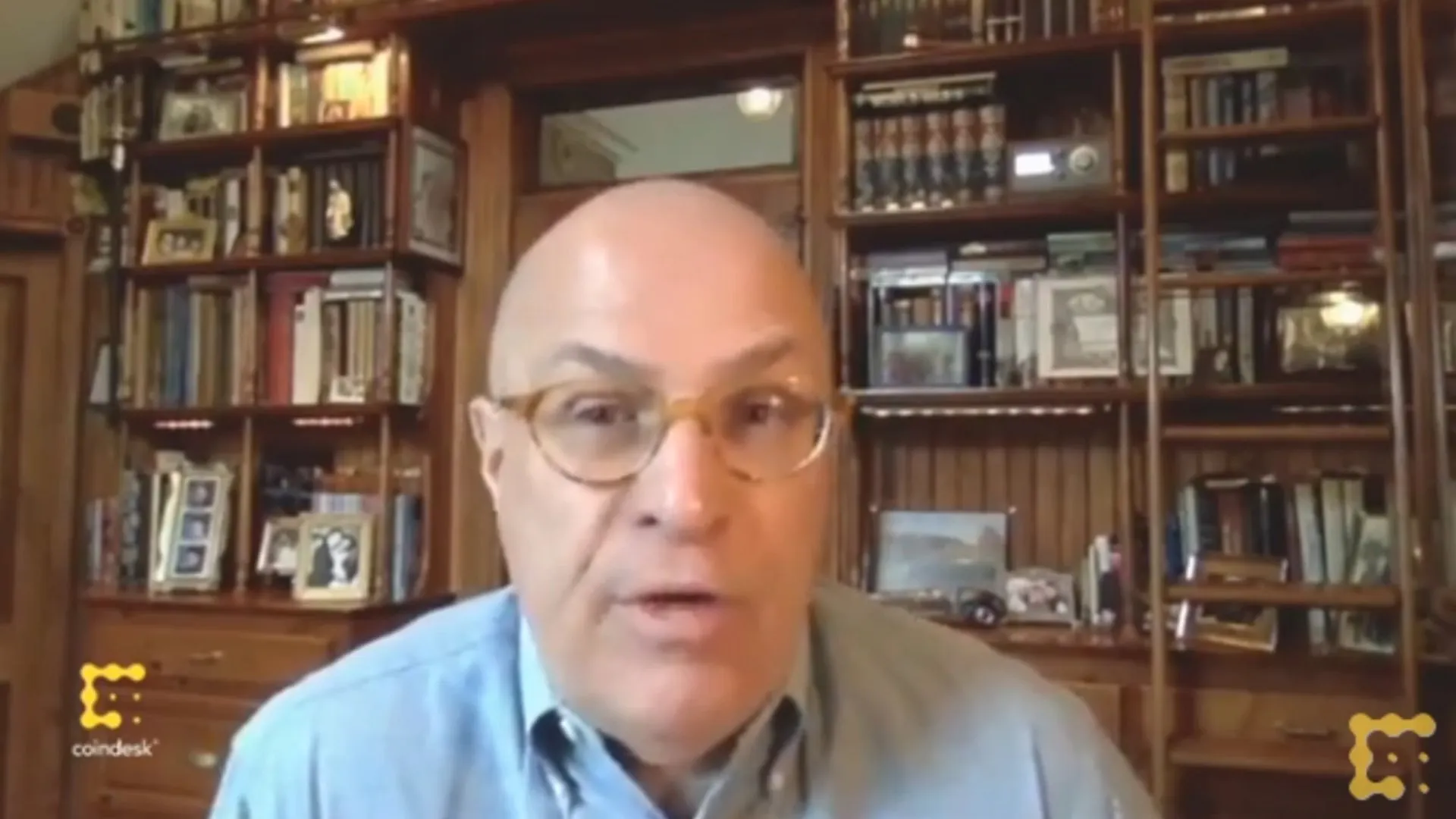In brief
- Speaking at Consensus 2020, multiple crypto experts said that traditional economies need to move towards digital currencies.
- The ability to put traditional fiat money onto blockchains will potentially extend their life, argued Avanti CEO Caitlin Long.
- Ex-CFTC chairman Christopher Giancarlo believes a digital dollar must maintain the balance between privacy and law enforcement.
The worldwide financial crisis caused by the coronavirus outbreak has highlighted the need for the digitalization of traditional economies and highlighted the advantages of cryptocurrency, according to crypto experts.
Today, ConsenSys CEO Joseph Lubin, Avanti CEO Caitlin Long and former CFTC chairman Christopher Giancarlo voiced their opinions during a live stream titled “Money Reimagined” during the course of virtual conference Consensus: Distributed 2020.
“We’re going to see breakthroughs in some of those projects that enable yields to be obtained by more regular consumers as central banks do what they believe they need to do to rescue this cascading collapse of the economy,” said Lubin, of ConsenSys (which funds an editorially independent Decrypt), adding, “I think we are going to see people rush into alternatives that will be better for people in terms of preserving their wealth.”
In her turn, Long, an advisor to the Wyoming Blockchain Coalition, echoed the sentiment previously voiced by Nic Carter, the co-founder of crypto data firm Coin Metrics, that the ability to put traditional fiat currencies onto blockchains will potentially extend their life.

“It might actually help establish the dollar as the world’s reserve currency for a longer period of time than history would predict. Because it gives a new platform on which to settle payments and ultimately individuals will go to where their capital is treated best. And if we end up with better payment systems that they can feel comfortable using [...] then businesses will use them. We’re in a giant race and it’s an exciting place to be,” Long noted.
At the same time, she acknowledged that the digitalization of currencies could present a “major risk” for personal privacy. While various financial institutions should comply with regulations, they shouldn’t go too far—to the point of becoming unconstitutional, Long added.
Giancarlo, who launched the Digital Dollar Project in January, argued that global lockdowns have accentuated many issues and flaws of traditional finance systems.
“What the crisis has shown us is really the limitations of the traditional accounts-based analog fiat system as we’re faced with the need to get benefits to needing persons in the economy, to keep the economy in neutral—rather than going into reverse while we wait to reopen. We’re also finding that money itself is a virus transmitter and we need to deal with that,” said Giancarlo.
Previously, the idea of creating a digital dollar has been reintroduced in a proposed bill, yet Giancarlo was among the first ones to say that it shouldn’t be rushed.

This time around, he also stated that high costs, slowness and frictions in global remittances and international payments are among the main issues traditional currencies are facing today.
“The dollar is a key part of the infrastructure, it’s a public good. But yet it also needs to be modernized as the world moves into the second stage of the Internet, the dollar itself needs to be future-proofed for that new era. It needs to be digitized and made programmable. [...] The great French writer Victor Hugo said ‘there is nothing more powerful than an idea whose time has come.’ We believe that the digital dollar is that idea whose time has come,” said Giancarlo.
He also reiterated that it’s “critically important” for the digital dollar to find a balance between personal privacy rights and law enforcement rights.
“If we get it right—and I believe that we can get it right—a US digital dollar could be a preferred unit of sovereign currency. Caitlin rightly said that money goes where it’s best treated. I fully agree and I think that we must...make the privacy balance right, so the dollar is seen as a reserve currency of choice, not of forced usage,” Giancarlo added.
As the US Federal Reserve may resort to negative interest rates—effectively allowing banks to charge you for lending them money—financial freedom is becoming an increasingly hot topic these days.

